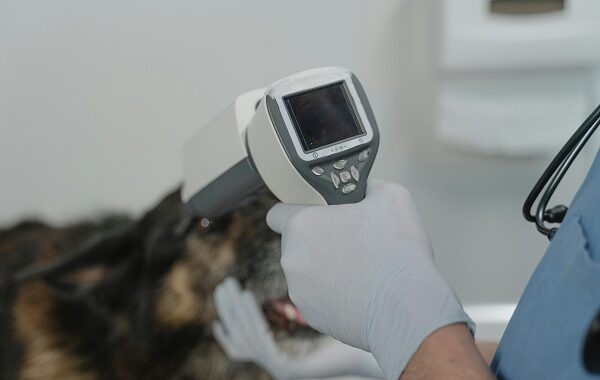Understanding pet disease prevention and parasite control is essential for maintaining your pet’s health and happiness. This comprehensive guide covers vaccination schedules, parasite screening, and treatment strategies to protect your furry friend from diseases and reduce costly veterinary bills.
Understanding the Importance of Pet Disease Prevention and Parasite Control
Pet disease prevention serves as the foundation of responsible pet ownership. Preventive care is always more cost-effective and less stressful than treating diseases after they occur. Modern veterinary medicine has made it possible to prevent many serious conditions that once claimed countless pet lives.
The core principles of pet disease prevention include regular veterinary checkups, appropriate vaccination protocols, parasite control measures, proper nutrition, and maintaining a safe environment. Each element works together to create a comprehensive shield against potential health threats.
Regular health monitoring allows early detection of problems before they become serious. This proactive approach to pet disease prevention and parasite control can extend your pet’s lifespan and improve their quality of life significantly.
Essential Vaccination Strategies for Disease Prevention
Vaccinations form the cornerstone of any effective pet disease prevention program. These biological preparations help your pet’s immune system recognize and fight specific diseases before they can cause serious harm.
Core vs. Non-Core Vaccines:
Core vaccines are considered essential for all pets due to the severity of the diseases they prevent and their widespread nature. For dogs, core vaccines typically include rabies, DHPP (distemper, hepatitis, parvovirus, and parainfluenza), and sometimes bordetella depending on local regulations. The American Veterinary Medical Association (AVMA) provides detailed guidelines on essential vaccinations for pets.
Non-core vaccines are recommended based on your pet’s lifestyle, geographic location, and risk factors. These might include vaccines for Lyme disease, leptospirosis, or kennel cough. Your veterinarian can help determine which non-core vaccines are appropriate for your specific situation.
Puppy and Kitten Vaccination Schedules:
Young animals require special attention in any pet disease prevention and parasite control plan. Puppies typically receive their first vaccines at 6-8 weeks of age, with boosters every 2-4 weeks until they’re 14-16 weeks old. This schedule ensures proper immune development while maternal antibodies wane.
Adult pets generally need annual or triennial boosters, depending on the vaccine type and local regulations. Some vaccines, like rabies, may be required by law and have specific timing requirements.
Vaccination Effectiveness and Considerations:
While vaccines are highly effective, they’re not 100% guaranteed. Factors like timing, your pet’s immune system, and proper vaccine storage all influence effectiveness. Understanding these limitations helps set realistic expectations for your pet disease prevention efforts.
Some pet owners question vaccine safety, but serious adverse reactions are rare. The benefits of vaccination far outweigh the minimal risks for most pets. Always discuss concerns with your veterinarian rather than skipping vaccines entirely. It’s worth noting that vaccination requirements may be legally mandated in many areas.
Comprehensive Parasite Control Methods

Parasite control represents another crucial aspect of pet disease prevention and parasite control. Parasites can cause everything from mild discomfort to life-threatening conditions, making prevention and early treatment essential.
Internal Parasites: Worms and Protozoa:
Internal parasites like roundworms, hookworms, whipworms, and tapeworms are common in pets. These parasites can cause digestive upset, weight loss, anemia, and in severe cases, intestinal blockages or organ damage.
Regular fecal examinations help detect internal parasites early. Your veterinarian can recommend appropriate treatments based on your pet’s age, lifestyle, and risk factors. Many monthly heartworm preventatives also protect against common intestinal worms. Proper management of intestinal worms requires consistent prevention and regular monitoring.
External Parasites: Fleas, Ticks, and Mites:
External parasites like fleas, ticks, and various mites are common in pets. These parasites can cause everything from mild discomfort to life-threatening conditions, making prevention and early treatment essential. The Centers for Disease Control and Prevention (CDC) emphasizes the importance of flea and tick prevention for both pet and human health.
Year-round parasite prevention is often recommended, even in colder climates where some parasites may be less active seasonally. Modern parasite control products are highly effective and available in various forms including topical treatments, oral medications, and collars.
Heartworm Prevention:
Heartworm disease is a serious and potentially fatal condition transmitted by mosquitoes. Prevention is far easier and less expensive than treatment, making heartworm prevention a critical component of pet disease prevention and parasite control. The American Heartworm Society provides comprehensive information about heartworm prevention and treatment.
Monthly heartworm preventatives are highly effective when given consistently. These medications also typically protect against other common parasites, providing comprehensive internal parasite control.
Environmental and Lifestyle Disease Prevention
Your pet’s environment plays a significant role in disease prevention. Maintaining a clean living space, providing proper nutrition, and ensuring adequate exercise all contribute to overall health and disease resistance.
Home Environment Safety:
Creating a safe home environment reduces exposure to toxins, parasites, and other health hazards. Regular cleaning, proper food storage, and removal of potential toxins help maintain a healthy living space for your pets.
Outdoor spaces should be kept free of standing water where mosquitoes breed, and yards should be regularly maintained to reduce parasite populations. Proper waste disposal prevents contamination and reduces parasite transmission risks. The Environmental Protection Agency (EPA) offers guidelines for creating safe environments for pets and families.
Nutrition and Immune System Support:
Proper nutrition supports your pet’s immune system, making them more resistant to diseases and parasites. High-quality pet foods provide essential nutrients that support immune function and overall health.
Avoid feeding raw diets without veterinary guidance, as these can increase parasite and bacterial infection risks. Fresh water should always be available, and food bowls should be cleaned regularly to prevent bacterial growth.
Regular Health Monitoring and Early Detection
Consistent health monitoring allows early detection of problems before they become serious. This proactive approach to pet disease prevention and parasite control can save both money and heartache in the long run.
Signs to Watch For:
Common signs that may indicate health problems include changes in appetite, water consumption, urination habits, energy levels, or behavior. Digestive upset, respiratory symptoms, and skin problems should also prompt veterinary attention.
Regular at-home health checks can help you become familiar with your pet’s normal appearance and behavior, making it easier to notice changes that might indicate health problems.
Professional Veterinary Care:
Annual veterinary examinations are essential for maintaining your pet’s health. Senior pets may benefit from twice-yearly checkups to catch age-related problems early. The American Animal Hospital Association (AAHA) recommends regular wellness examinations as the foundation of preventive healthcare for pets.
Your veterinarian can create a customized pet disease prevention and parasite control plan based on your pet’s specific needs, lifestyle, and risk factors. This personalized approach ensures optimal protection while avoiding unnecessary treatments. For comprehensive pet health guidance, consider exploring professional pet care services that can support your prevention efforts.
Seasonal Disease Prevention Considerations
Different seasons present unique health challenges that require adapted prevention strategies. Summer brings increased parasite activity and heat-related concerns, while winter may present different risks depending on your location.
Spring and Summer Precautions:
Warmer months typically see increased parasite activity, requiring vigilant prevention measures. Tick and flea populations peak during these seasons, and mosquito-borne diseases become more concerning. The Companion Animal Parasite Council (CAPC) provides detailed parasite prevalence maps and seasonal risk information.
Regular parasite prevention becomes even more critical during warmer months. Outdoor activities may increase exposure risks, making consistent prevention essential.
Fall and Winter Preparations:
Cooler months don’t eliminate parasite risks entirely. Many parasites can survive indoors year-round, and some diseases may actually increase during certain seasonal conditions.
Maintaining prevention protocols year-round provides the best protection. Some adjustments to prevention strategies may be appropriate based on seasonal risk changes and your pet’s activity levels.
Cost-Effective Prevention Strategies
Implementing effective pet disease prevention and parasite control doesn’t have to break the bank. Many prevention strategies are quite affordable, especially when compared to the cost of treating preventable diseases.
Preventive Care Plans:
Many veterinary clinics offer preventive care packages that bundle vaccinations, parasite prevention, and routine examinations at discounted rates. These plans can make comprehensive prevention more affordable while ensuring nothing important is overlooked.
Generic vs. Brand Name Products:
Generic parasite prevention products may offer cost savings while providing similar protection to brand name alternatives. Discuss options with your veterinarian to find effective, budget-friendly solutions.
Advanced Prevention Techniques
As veterinary medicine advances, new prevention options become available. Staying informed about the latest developments can help you provide the best possible protection for your pets.
Emerging Vaccines and Treatments:
New vaccines and prevention methods are regularly developed to address emerging disease threats. Your veterinarian can keep you informed about new options that might benefit your pets.
Genetic Testing and Personalized Medicine:
Genetic testing can identify predispositions to certain diseases, allowing for more targeted prevention strategies. This personalized approach to pet disease prevention and parasite control may become increasingly common as testing becomes more affordable and accessible. The American Kennel Club (AKC) provides resources on genetic health testing for dogs.
Creating Your Pet’s Prevention Plan
Developing a comprehensive pet disease prevention and parasite control plan requires considering your pet’s age, breed, lifestyle, and local disease risks. This individualized approach ensures optimal protection while avoiding unnecessary treatments.
Work with your veterinarian to create a prevention schedule that fits your pet’s needs and your budget. Regular plan reviews ensure continued effectiveness as your pet ages and circumstances change.
Remember that prevention is an ongoing process, not a one-time event. Consistent implementation of prevention strategies provides the best long-term health outcomes for your beloved pets.
FAQs:
How often should my pet receive vaccinations?
Core vaccines typically require annual or triennial boosters depending on the specific vaccine and local regulations. Puppies and kittens need more frequent initial vaccinations, usually every 2-4 weeks until 14-16 weeks of age. Your veterinarian will create a vaccination schedule based on your pet’s age, health status, and risk factors.
What are the most common parasites affecting pets?
The most common internal parasites include roundworms, hookworms, whipworms, and tapeworms. External parasites commonly include fleas, ticks, and various mites. Heartworms, transmitted by mosquitoes, represent another serious parasitic threat. Regular prevention and screening help protect against all these parasites.
Can I treat worms in my dog at home?
While over-the-counter deworming products are available, professional veterinary diagnosis and treatment are recommended. Different parasites require different medications, and proper dosing is essential for effectiveness and safety. Your veterinarian can identify specific parasites through fecal examination and prescribe appropriate treatments.
Is year-round parasite prevention necessary?
Yes, year-round parasite prevention is generally recommended. Many parasites can survive indoors regardless of outdoor temperatures, and some may actually thrive in certain seasonal conditions. Consistent prevention provides the best protection and is often more cost-effective than treating parasitic infections.
What happens if I miss a dose of my pet’s parasite prevention?
If you miss a dose, contact your veterinarian for guidance. They may recommend immediate administration of the missed dose, testing for parasites, or adjusting the prevention schedule. The specific recommendation depends on the product used, how long it’s been since the missed dose, and your pet’s risk factors.
Are there natural alternatives to conventional parasite prevention?
While some natural products claim parasite prevention benefits, their effectiveness is generally not scientifically proven to the same degree as conventional medications. Discuss any natural alternatives with your veterinarian before relying on them for your pet’s protection. They may be useful as supplementary measures but shouldn’t replace proven prevention methods.
How do I know if my pet’s vaccinations are working?
Vaccine effectiveness can be measured through titer testing, which checks antibody levels in your pet’s blood. However, this testing isn’t routinely necessary for most pets. Your veterinarian can advise whether titer testing is appropriate for your pet’s situation and help interpret results.
What should I do if my pet has an adverse reaction to vaccines or parasite prevention?
Contact your veterinarian immediately if you notice any concerning symptoms after vaccinations or parasite prevention administration. Most reactions are mild and temporary, but some may require prompt medical attention. Keep records of any reactions to help guide future prevention decisions.
